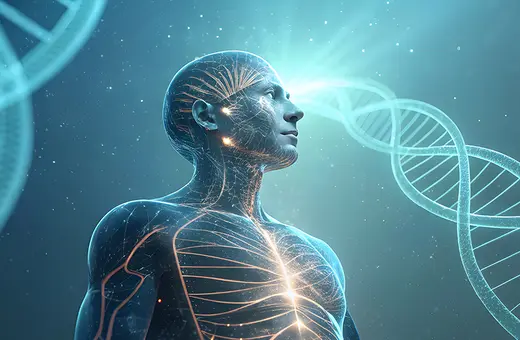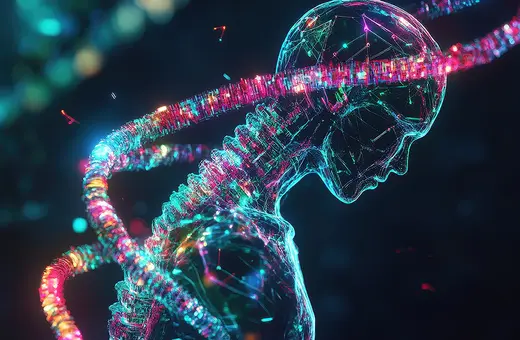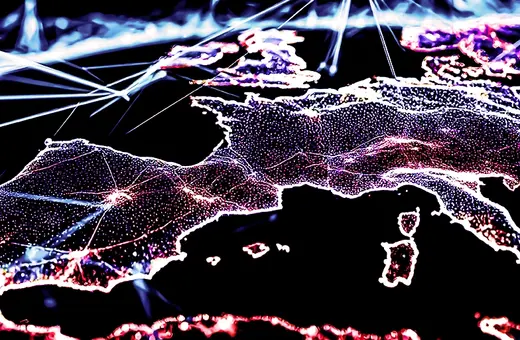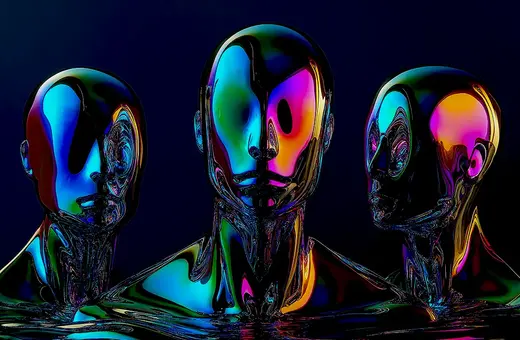Moloch is an evil, child-sacrificing god from the Hebrew bible, its name now is used to describe a pervasive dynamic between competing groups or individuals. Moloch describes when a locally optimum strategy, leads to negative effects on a wider scale. The addictive nature of social media, the mass of nuclear weapons on the planet, and the race towards a dangerous AI, all have Molochian dynamics to blame. Ken Mogi offers us hope of a way out.
With the rapid advancements of artificial intelligence systems, concerns are rising as to the future welfare of humans. There is this urgent question whether AI would make us well-off, equal, and empowered. As AI is deeply transformative, we need to observe well where we are heading, lest we should drive head-on to the wall or off the cliff with full speed.
One of the best scenarios for human civilization would be a world in which most of the work is done by AI, with humans comfortably enjoying a permanent vacation under the blessing of basic income generated by machines. One possible nightmare on the other hand would be the annihilation of the whole human species by malfunctioning AI, through widespread social unrest induced by AI generated misinformation and gaslighting or massacre by runaway killer robots.
The human brain works best when the dominant emotion is optimism. Creative people are typically hopeful. Wolfgang Amadeus Mozart famously composed an upbeat masterpiece shortly after his mother's death while staying together in Paris. With AI, therefore, the default option might be optimism. However, we cannot afford to preach a simplistic mantra of optimism, especially when the hard facts go against such a naive assumption. Indeed, the effects of AI on human lives is a subject requiring careful analysis, not something to be judged outright to be either black or white. The most likely outcome would lie somewhere in the fifty shades of grey of what AI could do to humans from here.
___
Moloch has come to signify a condition in which we humans are coerced to make futile efforts and compete with each other in such ways that we are eventually driven to our demise.
___
The idea that newly emerging technologies would makes us more enlightened and better-off is sometimes called the Californian Ideology. Companies such as Google, Facebook, Apple, and Microsoft are often perceived to be proponents of this worldview. Now that AI research companies such as DeepMind and OpenAI are joining the bandwagon, it is high time we estimated the possible effects of artificial intelligence on humans rather seriously.
One of the critical, and perhaps surprisingly true-to-life, concepts concerning the dark side of AI is Moloch. Historically the name of a deity demanding unreasonable sacrifice based on often irritatingly trivial purposes, Moloch has come to signify a condition in which we humans are coerced to make futile efforts and compete with each other in such ways that we are eventually driven to our demise. In the near future, we might be induced to be in a race to the bottom by AI, without realizing the terrible situation.
In the more technical context of AI research, Moloch is an umbrella term acknowledging the difficulty of aligning artificial intelligence systems in such a way to promote human welfare. Max Tegmark, a MIT physicist who has been vocal in warning of the dangers of AI, often cite Moloch to discuss negative AI effects brought upon humanity. As AI researcher Eliezer Yudkowsky asserts, safely aligning a powerful AGI (artificial general intelligence) is difficult.





















Join the conversation